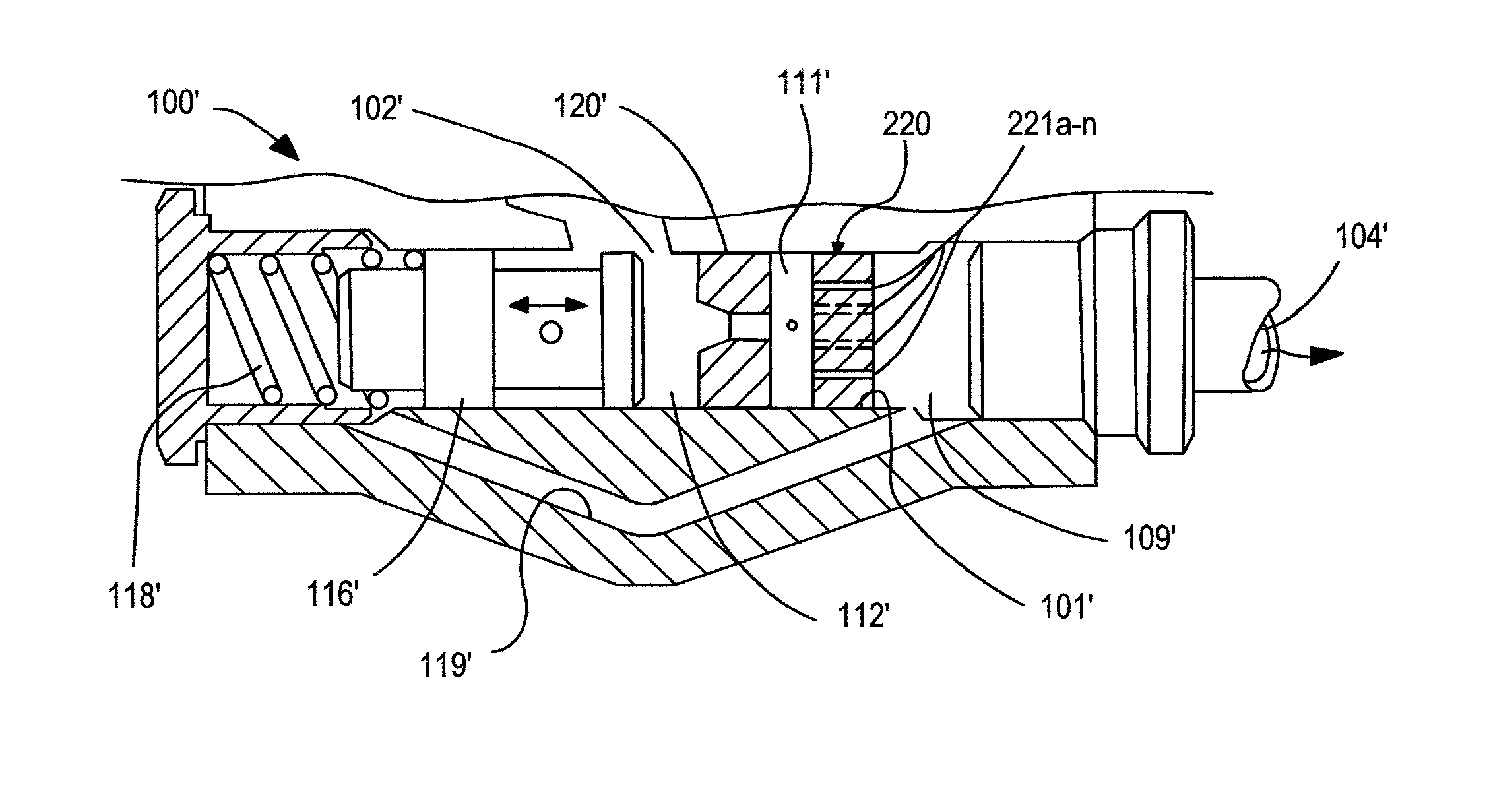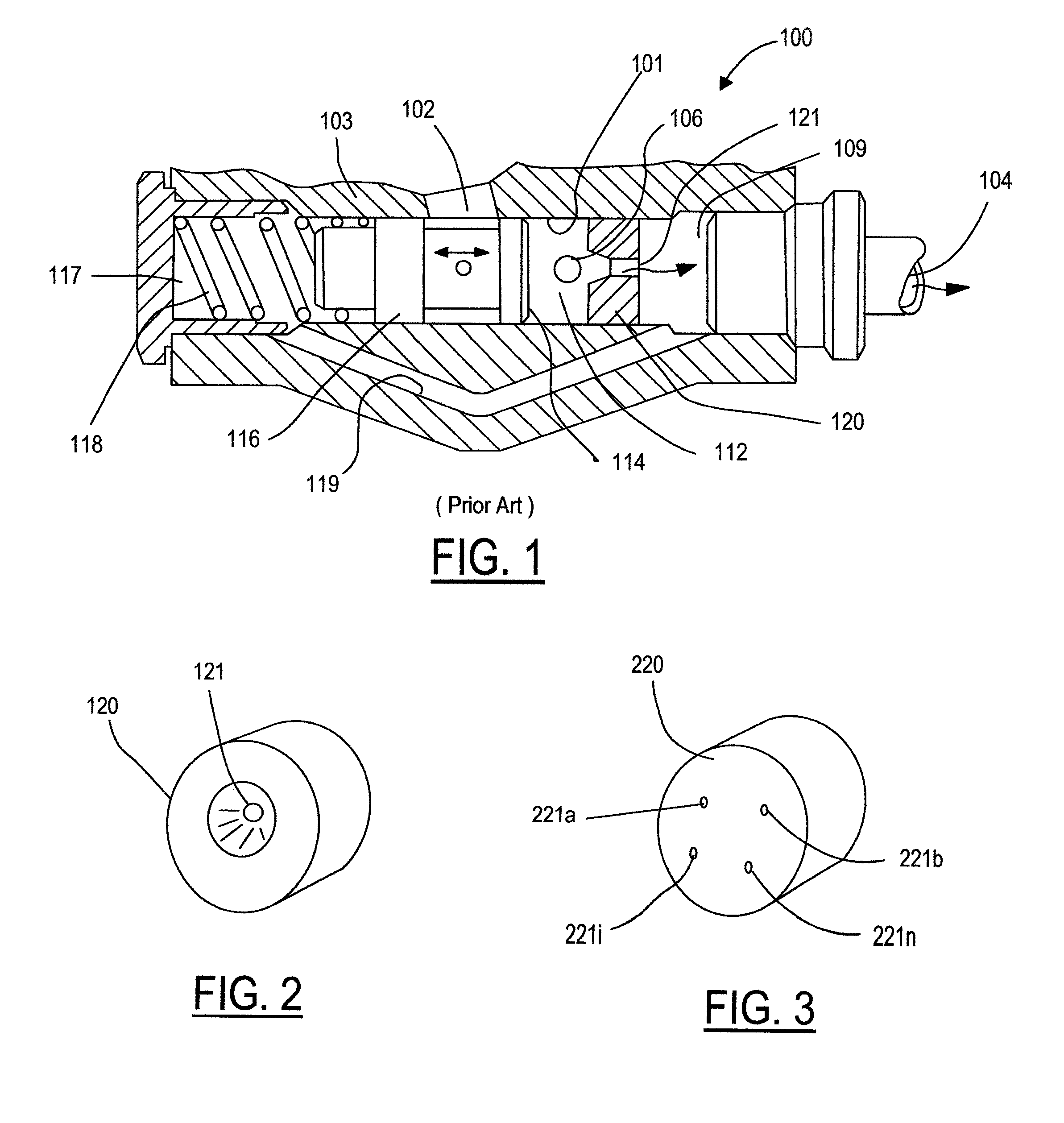Power steering pump flow control
a technology of hydraulic pumps and flow control, which is applied in the direction of fluid couplings, positive displacement liquid engines, servomotors, etc., can solve the problems of lack of fluid in the chamber cavitating the pump, the fluid viscosity is too high to permit sufficient flow of fluid, and the pump is unable to maintain the flow rate. , to achieve the effect of reducing the pulsation of fluid, reducing the resistance to high viscosity fluid, and reducing the pulsation
- Summary
- Abstract
- Description
- Claims
- Application Information
AI Technical Summary
Benefits of technology
Problems solved by technology
Method used
Image
Examples
first embodiment
[0030]In FIG. 4, the invention is shown in which the multiple passage orifice element 220 is placed downstream of a single passage outlet orifice element 120′ in the bore 101′ of a hydro-mechanical flow control device 100′. Multiple passage orifice element 220 is separated by a space 111′ from single passage outlet orifice element 120′ and prior to the opening to the feedback passage 119′. Multiple passage orifice element 220 is tight fitted in bore 101′ to require that all fluid flowing into outlet passage 109′ passes through the passages 221a-221n. The two orifice elements 120′ and 220, in series, act to provide the increased shear forces to high viscosity fluid flow at very low temperatures. During normal operation when the fluid is at its working temperatures, the multiple passage orifice element 220 does not interfere with the pressure control function of the single orifice element 120′.
second embodiment
[0031]In FIG. 5, the present invention is shown. The engine driven pump 10 has its low pressure input 13 connected to a reservoir 12 and its high pressure output 107 connected to a hydro-mechanical flow control device 100″ (also referred to as a “power steering valve”). The bypass port 102″ is connected to reservoir 12 via a hose 110. In this embodiment, the multiple passage orifice element 220′ is placed downstream of a single passage outlet orifice element of hydro-mechanical flow control device 100″. Here, the multiple passage orifice element 220′ is located in the outlet hose that leads from the hydro-mechanical flow control device 100″ to the steering assist valve 300.
[0032]The second embodiment illustrates how the present invention allows one the flexibility of locating the multiple passage orifice element anywhere downstream of the single passage outlet orifice element of a hydro-mechanical flow control device and before the power steering assist valve, while achieving the ob...
PUM
 Login to View More
Login to View More Abstract
Description
Claims
Application Information
 Login to View More
Login to View More - R&D
- Intellectual Property
- Life Sciences
- Materials
- Tech Scout
- Unparalleled Data Quality
- Higher Quality Content
- 60% Fewer Hallucinations
Browse by: Latest US Patents, China's latest patents, Technical Efficacy Thesaurus, Application Domain, Technology Topic, Popular Technical Reports.
© 2025 PatSnap. All rights reserved.Legal|Privacy policy|Modern Slavery Act Transparency Statement|Sitemap|About US| Contact US: help@patsnap.com



